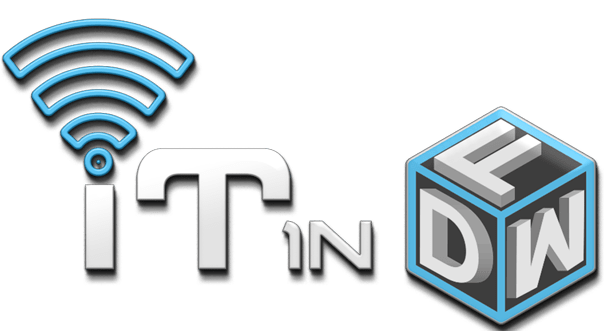Becoming HIPAA Compliant: Complete Guide for Dallas Healthcare Providers
HIPAA compliance is a topic that often is confused by new Dallas Healthcare providers. The threat of breaches in healthcare information systems is a major headache today. Healthcare providers can face financial disruption due to the breach.
Many medical and dental offices in Dallas lack the time and resources to implement HIPAA-compliant security plans. HIPAA compliance for healthcare providers is a mandatory aspect for healthcare providers in Dallas. It is no surprise that aligning with HIPAA is a daunting task for healthcare providers.
However, there is a way out of this challenge. Healthcare providers in Dallas can outsource to a local Dallas company to become HIPAA compliant. Companies who are specialized in medical and dental offices can help to achieve compliance.
This blog will share everything that a typical Dallas healthcare office will need to comply with HIPAA law.
What Is HIPAA Law?
The Health Insurance Portability and Accountability Act of 1996, or known as HIPAA was a step to modernize the flow of healthcare information and oversee how private patient data is maintained and secured by healthcare providers. In addition, it would address any limitation of health insurance coverage.
For healthcare-providing businesses, HIPAA compliance concerns the implementation of cybersecurity by organizations to protect health records from unauthorized access and usage. It is mandatory for healthcare organizations to meet the information security standards by HIPAA security rules.
How To Become Hipaa Compliant?
HIPAA compliance works with various sections, including technical safeguards, physical security, administrative protection, privacy rule, breaching notification rules, and omnibus regulations. Though it covers a large area, the Security Rule is flexible.
Irrespective of the nature of the healthcare business, there are two ways to become HIPAA compliant.
Do It Yourself
Healthcare businesses can use their in-house strategies to gain HIPAA compliance. Businesses that have dedicated in-house IT teams can complete various aspects of the process which will ensure that patient data is suitably protected.
If the company’s IT infrastructure and data security experts use the recommended tools for guidance and fulfill the demand of HIPAA rules, HIPAA compliance will be granted.
Why Is Outsourcing Widely Chosen?
Opting for outsourcing to gain HIPAA compliance for healthcare providers is a popular option. Outsourcing indeed is an effective and practical way to gain HIPAA compliance from a financial and logistical perspective.
Here are the best incentives for choosing the option:
- Focusing staff: As the outsourcing service provider will take care of HIPAA compliance, it will prevent in-house employees from being distracted from service for patients.
- Fast and easy compliance: Outsourcing can get the job done in the quickest and easiest way possible.
- Peace of mind: Outsourcing will provide emotional reassurance as the best technology and experts will be working on the purpose.
- Align with compliance: Having experts to take care of compliance will keep the business ahead of addressing new threats or change in HIPAA compliance. Besides, the outsourcing service provider will keep the IT security updated.
Small-to-mid-sized healthcare businesses in Dallas can gain the best service from outsourcing and this is probably the best way to gain compliance.
Why Invest In Outsourced Hipaa Compliance?
Before committing to outsourcing HIPAA compliance service, it is imperative to learn what level of service is expected. A comprehensive HIPAA compliance service would provide:
Local Knowledge: Provide knowledge on HIPAA security rulings in the USA and overcome challenges faced by healthcare service providers in Dallas.
Gap Analysis: The service provider will observe the situation of the business. They will analyze the key features which include information systems, data storage, and incident response plan, and provide insight into how far or close the company is to comply with regulations.
Remediation: Gap analysis is conducted by third-party providers to plan and incorporate the necessary changes. These incorporations can vary from minor to monumental. Outsourcing makes the extensive upgrade of networks or simple modernization easier to implement and gain compliance.
Monitoring Cybersecurity: A managed IT service provider who works with HIPAA compliance will use a range of tools that will track data protection and recognize any threats or vulnerabilities. It will bring in a continuity strategy that will make a difference for healthcare organizations in a competitive market.
Conclusion
Becoming HIPAA compliant is an essential part of Dallas Healthcare providers to assure the protection of patients’ sensitive information and maintain compliance. By adhering to HIPAA standards the business commits to safeguarding the patient information.
Outsourcing service providers for HIPAA compliance is a straightforward solution to gaining compliance. Outsourcing would enable businesses to set up compliance standards and get the proper cybersecurity measures to ensure the safety of patient data.
It is important for businesses to have an expert service provider take care of the technical aspect, develop security measures and utilize gap analysis to find opportunities. It eventually helps any business in the long term to stay ahead of the competition and gain compliance easily.

CORPORATE OFFICE
1509 W Hebron Parkway
Suite Number 150
Carrollton, TX 75010
 May 3, 2023
May 3, 2023